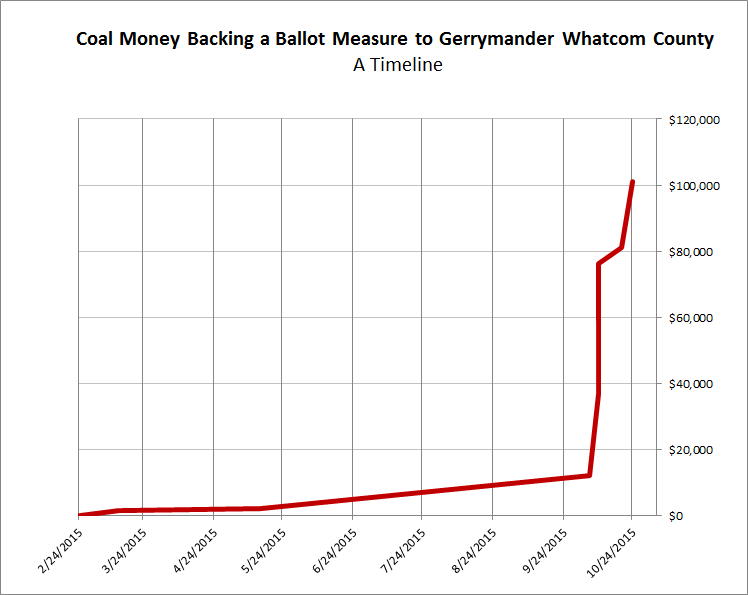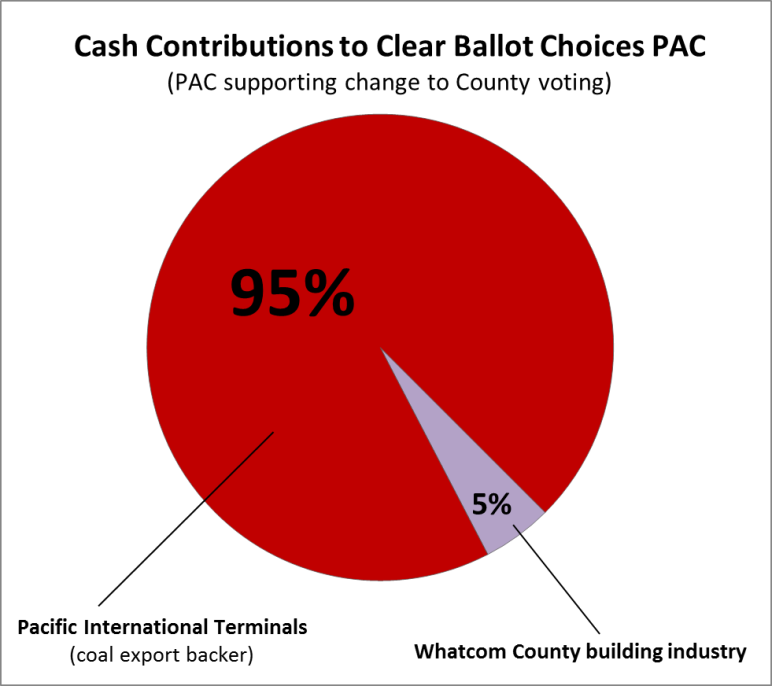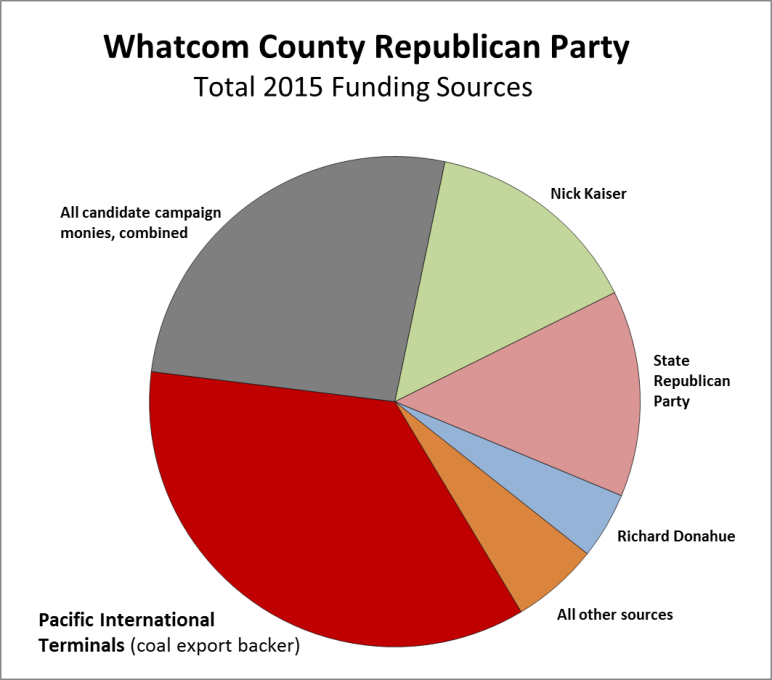Voters in Whatcom County, Washington, are about to bubble in their views on an obscure ballot measure that would tweak the structure of elections, changing from county-wide elections to district-only. It’s the sort of governance minutiae that’s typically overlooked by political observers and citizens alike, but in this case, the stakes are high. As we pointed out in July, Big Coal wants to lock in gerrymandering in Whatcom County.
And now we have proof. Just look at the last-minute coal money flooding in.

For the uninitiated, little Whatcom County in the far northwest corner of Washington has become a nationally significant battleground for climate change and the politics of dirty energy. At Cherry Point, a few minutes south of the Canadian border, coal backers have proposed to build a massive export terminal that would be the biggest in North America.
Whatcom County residents are not exactly wild about the idea of playing host to staggering quantities of the world’s dirtiest fuel. So coal companies have tried to rig politics to their advantage. In 2013, we documented coal interests spending more than $170,000 to try to elect candidates who would give coal the green light. But they lost. With backing from environmental advocates, anti-coal-terminal candidates swept the election, winning all four of the Council races.
Coal interests lost that battle, so they switched tactics: gerrymandering the county elections to produce pro-coal elected officials.
All the money shown in the red segment below comes from a single source: Pacific International Terminals, the proponent of the 48-million-ton-per-year coal export terminal. (Pacific International Terminals is the project-specific subsidiary company of port industry giant SSA Marine, the real muscle behind Northwest coal exports.) In the few weeks ahead of the 2015 general election, the company has injected roughly a hundred thousand dollars into two arteries: a political action committee (PAC) called Clear Ballot Choices and the county’s Republican Party.
For all intents and purposes, the PAC is nothing more than a political arm of the coal export industry. According to public campaign finance records, more than $58,000 of the PAC’s funding (virtually all of it) can be traced to Pacific International Terminals.

Flush with coal export money, the PAC aims to swamp county voters with last-minute propaganda.
In addition to funding its own PAC, Pacific International Terminals also bankrolled the Whatcom County Republican Party to the tune of over $40,000, so that local GOP operatives could advance the company’s pro-coal gerrymandering. It’s such a huge infusion of cash that it accounts for more than a third of the entire year’s funding for the county’s Republican Party.

In Whatcom County, local authorities have a direct say over the land use and permitting decisions that will allow the project to go forward—or not. In other words, the composition of the Whatcom County Council matters a great deal to the future of the coal industry.
And unfortunately, the composition of the County Council could be decided by district boundary line, not by voters. The district-only charter amendment (“Proposition No.1: Method of Electing Council Members”) would eliminate the current practice of conducting primaries by district and general elections countywide and instead conduct the general election by district for six out of seven Council seats. Because the district lines are gerrymandered to slice and dice the city of Bellingham, changing the election in this way would dilute the more urban and liberal Bellingham vote and amplify the more rural and conservative vote, resulting in a disproportionately conservative Council.
No wonder Big Coal is ponying up cash for this obscure charter amendment: it could be the One Change to Rule Them All. By locking in gerrymandering for every future election, Big Coal could permanently disenfranchise anti-coal voters, making it easier for pro-coal candidates to win in every future Whatcom County election until the coal export terminal gets built.
UPDATE 11/1/115: Bellingham resident Alex Ramel has filed a complaint with the Washington Public Disclosure Commission, alleging that Pacific International Terminals has committed three “serious” violations of state election law in the timing and reporting of its last-minute contributions.
Notes: Our tally of contributions to the Whatcom County Republican Party includes both exempt and non-exempt pools of money. If we counted only exempt money (the category that the coal industry claims to be contributing to), then the industry would account for more than 75 percent of the total.


Comments are closed.